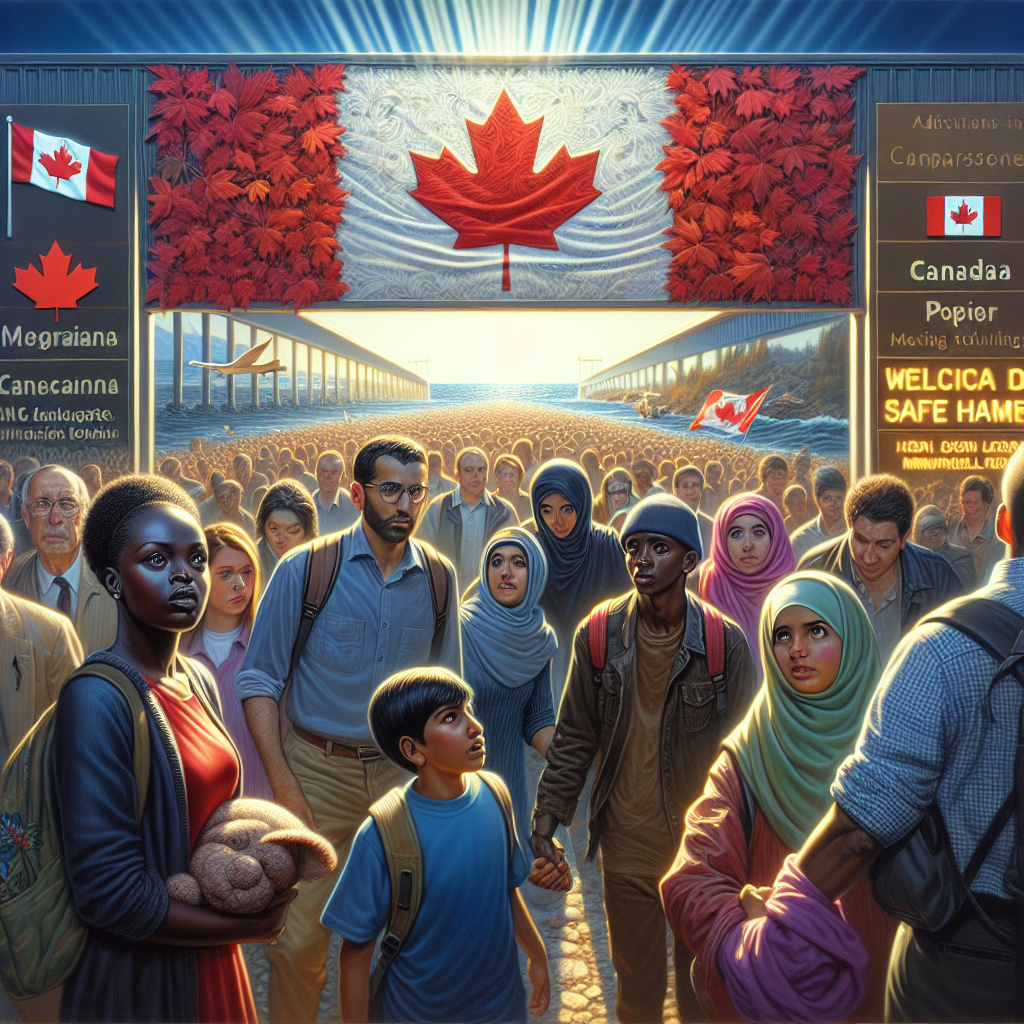U.S. Travel Bans Influence Surge in Canadian Immigration

Title: The Ripple Effects of U.S. Immigration Policy on Canada: A Looming Challenge
As immigration tensions rise in the United States, Canada is poised to face significant repercussions. With the U.S. implementing travel bans targeting specific countries, experts anticipate a surge in irregular border crossings into Canada. This situation not only raises political concerns but also poses practical challenges for Canada’s immigration framework, border security, and international standing.
Understanding the U.S. Travel Bans and Their Impact
When the U.S. restricts entry for certain populations, it does not halt the desire for safety and opportunity; rather, it redirects those aspirations towards Canada. The recent travel ban affecting citizens from twelve countries, framed as a national security measure, may inadvertently push individuals to seek refuge in Canada through perilous routes—bypassing established immigration channels.
Central to this issue is the Safe Third Country Agreement (STCA) between the U.S. and Canada, which stipulates that asylum seekers must make their claims in the first "safe" country they enter. If the U.S. becomes inaccessible for certain populations due to these travel bans, many may resort to crossing into Canada illegally, complicating the existing immigration landscape.
Canada’s Preparedness for Irregular Arrivals
Canada’s immigration system prides itself on being structured and welcoming, but an influx of irregular arrivals could overwhelm border services, delay processing times for legal immigration applications, and provoke public concern regarding security and resource allocation. In light of these potential challenges, Canadian officials are reassessing the STCA to determine its relevance in today’s context.
Historical precedents, such as the spike in asylum seekers crossing into Canada during the Trump administration, highlight the urgency of this situation. Many of these individuals sought refuge from dire circumstances, often arriving at the border unprepared and in harsh conditions, indicating the human impact of restrictive policies.
The Bigger Picture: Safety and Humanitarianism
While immigration policies often evoke heated rhetoric, it’s crucial to differentiate between perception and reality. Research indicates that immigrants and refugees tend to commit crimes at lower rates than native-born citizens. Furthermore, robust screening processes exist for legal applicants in both Canada and the U.S. Closing off legal channels can lead to increased risks, including reliance on smugglers or unsafe crossings—ironically undermining safety for all.
A transparent and fair immigration system benefits not only those seeking refuge but also allows governments to manage resources effectively and maintain control of their borders. As U.S. immigration policies tighten, Canada stands to gain a more significant role as a sanctuary for those fleeing turmoil.
Looking Ahead: Navigating New Pressures
As Canada prepares for an anticipated rise in irregular crossings, it must balance compassion with practicality. The country can expect to remain a favored destination for individuals in search of stability and opportunity, but it must also address the complexities that come with increased irregular migration.
For prospective immigrants, the message is clear: pursue authorized immigration pathways, such as Express Entry, family sponsorship, or provincial nominee programs. Engaging with immigration experts can provide crucial guidance in navigating this evolving landscape.
Conclusion: A Call for Balanced Policy
U.S. travel bans may not directly target Canada, but their consequences are undeniable. As migration patterns shift, Canada must prepare for new challenges and opportunities. A proactive, balanced approach that prioritizes both humanitarian assistance and national security will be critical in shaping the future of Canadian immigration in this changing context.
By staying informed and advocating for fair policies, Canada can continue to uphold its commitment to providing refuge while ensuring the integrity of its immigration system.



